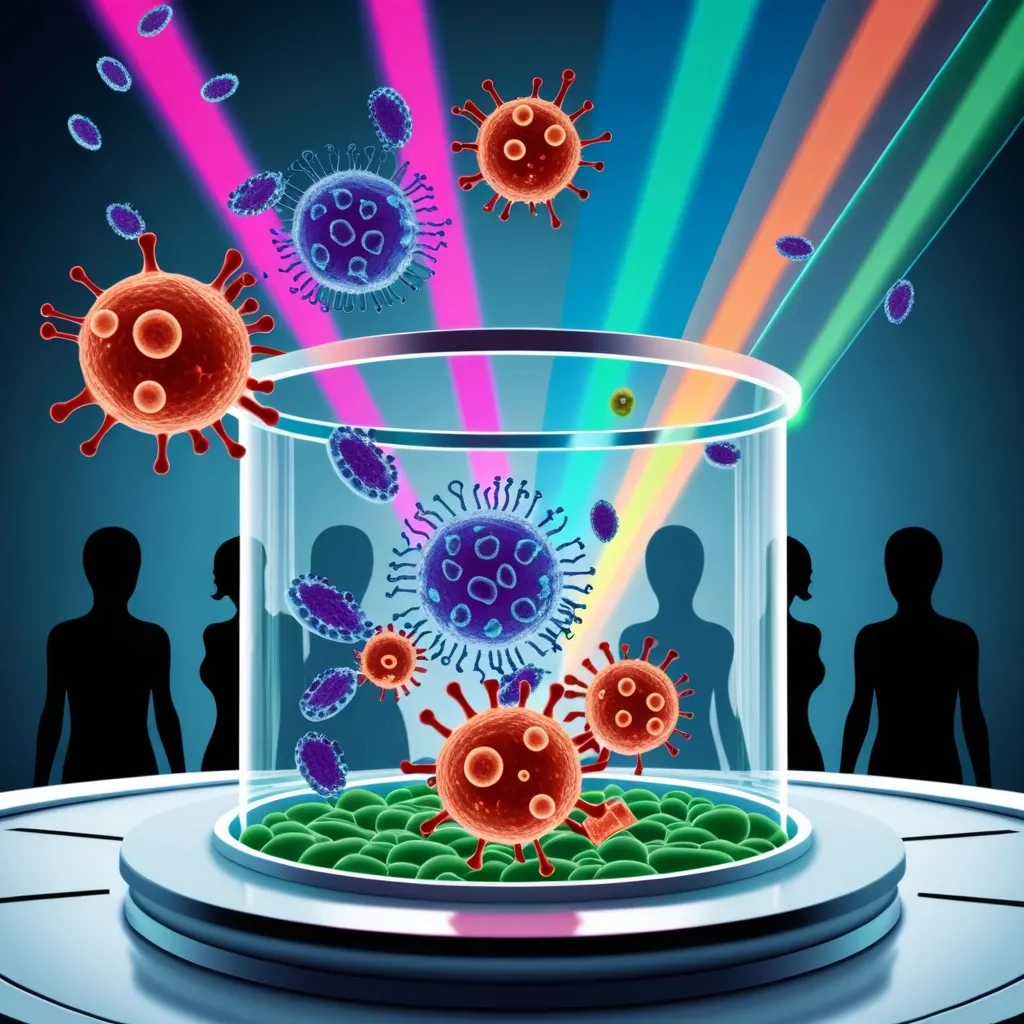Vaccines: Our Shield Against Future Pandemics
The COVID-19 pandemic shook the world, but it also sparked a revolution in vaccine technology. As we look to the future, these innovations are set to change how we tackle global health crises. Let’s dive into the exciting world of vaccine advancements and see how they’re shaping our fight against pandemics.
Remember when we were all waiting anxiously for a COVID vaccine? Well, that wait might be a thing of the past. The star of the show? mRNA vaccines. These little miracles can be whipped up in record time. During the pandemic, scientists designed and produced mRNA vaccines against the new coronavirus faster than ever before. It’s like they put vaccine development on steroids!
But here’s the really cool part - mRNA vaccines aren’t just for infectious diseases. They’re showing promise in treating things like cancer too. Imagine getting a personalized vaccine in just six weeks. That’s not science fiction; researchers at Moderna are actually working on it.
Now, don’t get me wrong. mRNA vaccines are awesome, but they’re not perfect. We still need to figure out how well they work in the long run and how they hold up against new virus variants. It’s like when you buy a new gadget - you need to test it out in different situations to see how it really performs.
But mRNA vaccines aren’t the only new kids on the block. We’ve got nanoparticle (NP) vaccines and virus-like particle (VLP) vaccines too. These vaccines are like the tough, reliable friends you want by your side in a crisis. They’re more stable and can kick your immune system into gear better than traditional vaccines. NP vaccines, for example, wrap up the bits of the virus that trigger an immune response in a neat little package. It’s like sending your immune system a gift-wrapped present – here’s what you need to fight, all tidied up and ready to go!
Now, here’s where things get really sci-fi. Scientists are working on something called “proactive vaccinology”. It’s like they’re building a crystal ball for diseases. Instead of waiting for a new virus to pop up, they’re creating vaccines for viruses we haven’t even seen yet. Researchers at the University of Cambridge have come up with a vaccine that trains your immune system to recognize parts of multiple coronaviruses, including ones that are still hanging out in bats and might decide to pay us a visit someday.
They’re calling it the “Quartet Nanocage” vaccine. Sounds fancy, right? It’s like a Swiss Army knife for your immune system, ready to tackle a whole bunch of different coronaviruses. As Professor Mark Howarth from Cambridge puts it, “We don’t have to wait for new coronaviruses to emerge. We know enough about coronaviruses, and different immune responses to them, that we can get going with building protective vaccines against unknown coronaviruses now.” It’s like we’re finally getting ahead of the game instead of always playing catch-up.
But wait, there’s more! Scientists are also working on universal vaccines. These are like the superheroes of the vaccine world. They aim to protect against multiple viruses in the same family. It’s like getting one vaccine that shields you from a whole bunch of related viruses. Companies like DIOSynVax are using some seriously high-tech stuff - computational biology, protein structure, immune optimization, and synthetic biology - to create these super-vaccines.
Now, all this science is great, but here’s the thing - it doesn’t mean much if people can’t get their hands on the vaccines. The COVID-19 pandemic showed us that there’s a big gap between rich and poor countries when it comes to vaccine access. We saw initiatives like COVAX try to bridge this gap, but we’ve still got a long way to go. It’s like having a life-saving medicine but keeping it locked up where most people can’t reach it. Not cool, right?
So, what’s the solution? Well, we need to keep the momentum going. During the pandemic, we built up a lot of vaccine manufacturing capacity. We need to keep that going, so we’re ready to spring into action when the next outbreak hits. It’s like keeping your emergency kit stocked and ready - you hope you won’t need it, but you’ll be glad it’s there if you do.
And let’s talk money for a sec. Vaccines aren’t just about saving lives (though that’s pretty important!). They’re also economic powerhouses. Estimates suggest that COVID-19 vaccines prevented over 14 million deaths and saved $1.15 trillion in medical costs in the US alone. That’s some serious cash!
Looking ahead, we need to change our approach to vaccine development. Instead of always reacting to new threats, we need to be proactive. This means investing in early-stage research, beefing up our surveillance systems, and having diverse response plans ready to go. We’re talking about using cutting-edge stuff like genomics, data-sharing, and synthetic biology to create vaccines that can protect against whole families of viruses and their potential variants.
One cool example of this is the use of “nanoscale organization” to produce “nanocages”. These tiny structures contain bits of multiple sarbecoviruses (that’s the family that includes SARS and COVID-19). In animal trials, these nanocages triggered a strong immune response against a wide range of viruses. It’s like training your immune system to be a virus-fighting ninja!
But here’s the catch - all this amazing science won’t mean much if we don’t address the inequities in vaccine access. We need to promote sustainable, global-public-health-driven vaccine development and manufacturing. This means making sure that everyone has access to the latest vaccine technologies, not just wealthy countries. We need small-scale, rapid-response interventions that are safe, effective, and adapted to local needs, especially in low- and middle-income countries. It’s like making sure everyone has a seat at the table, not just the VIPs.
So, what’s the bottom line? The future of pandemic prevention is looking pretty exciting, thanks to all these advancements in vaccine technology. From mRNA vaccines to proactive vaccinology and universal vaccines, scientists are working hard to make sure we’re ready for whatever nature throws at us next.
But remember, it’s not just about the science. We need global teamwork, fair access to vaccines, and ongoing investment in vaccine research and manufacturing. It’s like a global relay race - we all need to do our part to pass the baton and reach the finish line together.
In the end, future-proofing our protection against pandemics isn’t just about fancy new technologies. It’s about working together, sharing knowledge, and making sure everyone benefits from these incredible scientific breakthroughs. It’s a big challenge, but hey, if we can create vaccines for diseases that don’t even exist yet, I’d say we’re up for it!
So, next time you hear about a new vaccine breakthrough, get excited! It’s not just science news - it’s a glimpse into a future where we’re better equipped to keep everyone healthy, no matter what bugs come our way. And that’s something worth celebrating!






